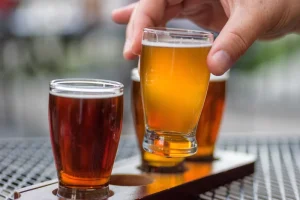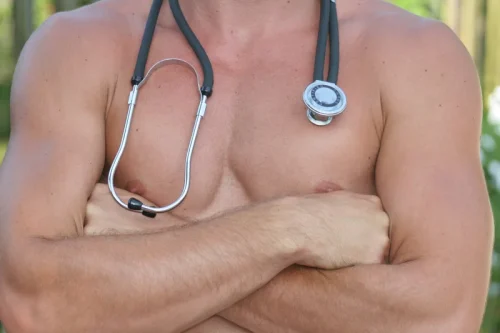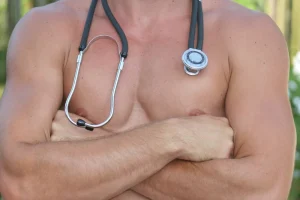
However, there were no significant differences in muscle mass gains between best vitamins for recovering alcoholics the two groups. Aubri John has been a contributing researcher and writer to online physical and mental health oriented journals since 2005. John publishes online health and fitness articles that coincide with her licensed clinical skills in addictions, psychology and medical care. She has a master’s degree in clinical social work and a Ph.D. in health psychology. Found in oysters, mushrooms, pumpkin seeds, cashews, and spinach, Zinc is important for optimal mental health so supplements can be incredibly beneficial for recovering addicts. A variety of vitamin B supplements have been proven to reduce craving, whilst improving brain health.
- Incorporating lentils into a balanced diet can contribute to meeting daily protein requirements, supporting muscle health.
- NAD also helps reduce cravings for alcohol by binding to opioid receptors in your brain.
- Edamame, or young soybeans, provide about 18.4 grams of protein per cup.
- Group therapy and participation in programs like Alcoholics Anonymous can also provide a valuable support system for individuals in recovery.
- The B vitamins are essential for overall health, and during alcohol withdrawal, they can help restore balance in the body.
- When going through alcohol withdrawal, it’s crucial to support your body’s recovery by addressing nutrient deficiencies.
Eat Healthy Fats

Fresh fruits and vegetables provide essential vitamins, minerals and antioxidants that support muscle function and recovery. While not high in protein, they contribute to overall health, aiding in effective muscle building. Chia seeds are rich in protein, omega-3 fatty acids and fiber, providing about 4.7 grams of protein per one-ounce serving. Cottage cheese is high in casein protein, a slow-digesting protein that provides a steady release of amino acids, beneficial for muscle repair during periods without food intake. Beans are rich in protein and fiber, supporting muscle growth and digestive health.
The Road to Recovery

Alongside herbal remedies, it’s essential to consume antioxidants to help neutralize free radicals—harmful molecules that can damage cells in your body. But, appropriate vitamins for recovering alcoholics are beneficial for the road to recovery. Alcohol can cause malnutrition, malabsorption, and increased urinary excretion of the vitamin, leading to vitamin C deficiency. Severe deficiency, called scurvy, may result in anemia, bruising, and dental issues.
Vitamins That Help With Alcohol Withdrawals

People may need professional help to get them through withdrawal, help manage their symptoms, and provide the best chance of successful rehabilitation. Overall, according to the American Society of Addiction Medicine, the goal of detoxification is to help make withdrawal safer, more humane and prepare the individual for ongoing treatment. Many treatment protocols for AWS involve supportive care as the person withdraws to ease the discomfort of the symptoms. People with vitamin C deficiency or scurvy may also have issues with wound healing, swollen and bleeding gums, tooth loss, and jaundice.
Magnesium
NAD is known as the energy molecule because it plays a vital part in the metabolism of food into energy. Equally, disruption of NAD levels caused by alcoholism can cause fatigue and lethargy. The impact of nutrition on mental health has become more and more obvious in recent studies. This has led many to wonder if the ever-increasing rate of depression worldwide might be linked to lowering quality diets. Then there are supplements to help stop drinking alcohol and even combined packages for people undergoing detox. Remember, healthcare providers are there to support you and are equipped to help you make the most informed choices possible on your journey to recovery.
- This cycle can be reinforced by how the brain, especially the midbrain, responds to drinking.
- In other words, addiction can lead to vitamin and mineral deficiencies.
- These include supplements for alcohol cravings, repairing your liver, and rebalancing your nervous system.
- These deficiencies can have serious health consequences and contribute to the overall decline in physical and mental health observed in alcohol-dependent individuals.
- Incorporating these vitamins into your diet or taking them as supplements can make a significant difference in your recovery journey.
A study published in 2013 examined the impact of rice protein isolate supplementation on muscle development in humans. In this randomized trial, participants engaged in resistance training while consuming either whey protein or rice protein isolate post-exercise. A study published in December 2020 investigated the impact of peanut protein supplementation combined with resistance training on muscle hypertrophy and Sober living house strength in untrained, older adults. A meta-analysis of randomized, clinical trials compared the effects of soy protein and whey protein supplementation on body composition. Tofu is a versatile plant-based protein source, providing about 6.9 grams per 3.5-ounce serving. It contains all the essential amino acids, making it a complete protein suitable for muscle building.

The University of Michigan Health System suggests supplementing vitamin C to rid the body of excess alcohol during the initial withdrawal. The upper limit for daily vitamin C is 2,000 mg, however, medically supervised dose increase is advised before taking vitamin C exceeding the daily recommendation of 90 mg. Vitamin A, or beta-carotene supplements help to correct deficiencies during withdrawal, but due to potential liver damage from alcoholism, should only be taken under physician supervision. A struggle with alcohol use impacts many aspects of a person’s life, including diet and nutrition. Drinking too much can lead to severe nutrient depletion, creating symptoms that can make alcohol detox and recovery more difficult and permanently affect your health. Eating a healthy diet and supplementing with vitamins as needed can help correct some of the damage from drinking.


